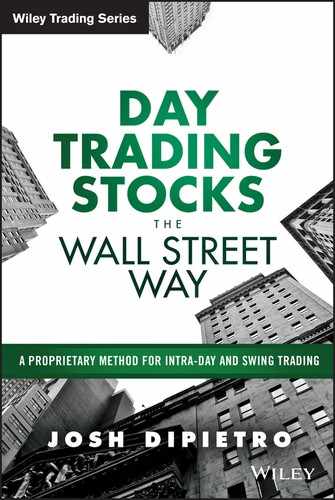Lesson 7
Budgeting Your Way to Profitability
It's worth repeating: the most common mistake most amateur day traders make is thinking they're going to advance quickly in day trading. Most amateurs lose most of their start-up capital within months of their first trade. You can avoid this by receiving proper training. My mentorship program helps you set realistic financial goals. I also help you keep your destructive impatience in check. I keep after that like a smoke alarm.
My goal in this lesson is to financially prepare you for the rough road ahead.
How to Stay Out of the Poorhouse
-
Obviously it's essential to not quit your main source of income. Most of us mortals have to work for our hard-earned cash. If you happen to have plenty of savings, and you've deemed it investment (or disposable) income, then I guess you can ignore this advice. But to those of you watching your wallets, I can't say this enough: I hope you're aware of the danger of investing in a career that can wipe you out overnight.
My job as your mentor is to train you on how to not lose all your money. After you've learned that essential, only then will I allow you to work on consistent profits.
- It's best for you to have a job that doesn't require your attention during market trading hours, which are 8 a.m.–11:30 a.m. EST. It's ideal if you can work nights and weekends, or, if you live on the West Coast, you can start trading at 6:30 a.m. and be done by 8:30 a.m. PST.
- In the beginning do not expect to make consistent income from day trading. It will take you several months (or even years) to become a pro-trader who can rely on day trading profits for your consistent income.
- You need 25K to open a pay-per-share account, and I strongly suggest a cushion of an additional 5K. This is important because if you fall below the minimum 25K, then you'll be placed in an “equity call.” This means you most likely will have limitations on your leverage/buying power, and you will need to immediately add funds to your account to get it back up to at least 25K. Therefore, the additional 5K helps you have peace of mind when you're first starting out.
The bottom line is that you mustn't be financially desperate when you're day trading stocks. Your starting capital should not be your life's savings or credit, or your kids' college fund. You should approach your start-up capital as you would any business investment: by planning, researching, budgeting, and with plenty of margin for error. Because even under my wing, and even after months of training, you can still slip up and make a classic mistake that will cost you your hard-earned dollars.
